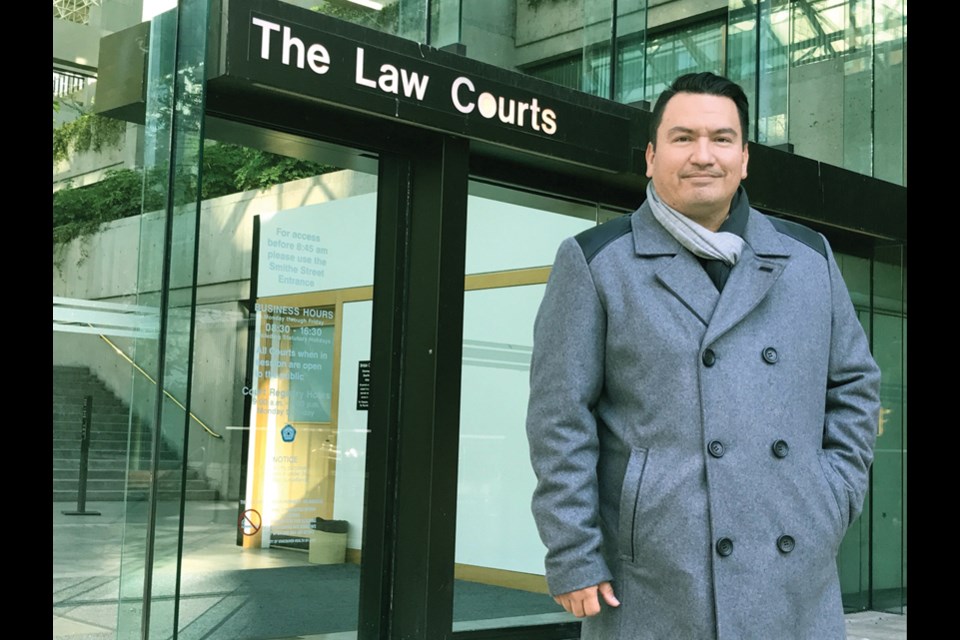The Squamish Nation is facing off against the provincial government in court this week, over B.C.’s decision to approve the Trans Mountain pipeline expansion over objections of the First Nation.
Lawyers are in B.C. Supreme Court after the Squamish requested a judicial review of provincial approval, granted under the previous Liberal government.
The Squamish are arguing in court that provincial approval should be set aside over lack of adequate consultation with the First Nation.
At the start of the regulatory process for the pipeline expansion, the province and the Squamish Nation appeared to share many concerns, questioning details on how diluted bitumen would behave in the marine environment and seeking more information about potential cleanup, said Chief Ian Campbell, who was in the court as the case got underway on Monday. But the province abruptly changed its tune, said Campbell, when then Liberal premier Christy Clark announced a deal between B.C. and Kinder Morgan that would see the province get $1 billion in benefits in exchange for approving the pipeline.
“They arbitrarily made that decision without consulting us or explaining why all of the points we were raising became moot,” said Campbell. “We felt slighted on that issue.”
Another concern was an assessment by the Crown, as part of the National Energy Board process, that the Squamish had only a “low to moderate” claim on the area in question along Burrard Inlet.
“We have three communities right on Burrard Inlet which are historic villages occupied for thousands of years,” said Campbell.
Requests to the province to explain how that assessment was arrived at were met with unsatisfactory generic answers, said Campbell. “It left us very dismayed,” he said, adding the Squamish felt their concerns were not being taken seriously.
Campbell said the Squamish hoped for different treatment when the NDP assumed power, adding he met with Premier John Horgan to ask him to drop the province’s defence of the lawsuit. But instead, the province opted to continue to defend the previous government’s position in court.
Environment Minister George Heyman said in an interview that the current government had little choice. After consulting with legal experts, the new government concluded “There’s a responsibility of the government to defend its actions,” said Heyman. If the province refused, it’s possible the court could appoint someone else to represent it, he added.
Heyman said the province’s lawyers will outline for the judge the steps taken to consult with the Squamish during the environmental review process. But that doesn’t preclude the province seeking a higher standard of consultation in the future, he said. It also doesn’t change B.C.’s position as opposed to the project – which the province has put forward in a court case opposing federal approvals of the pipeline expansion. “We think this project is bad for B.C.,” he said.
Campbell said the two different legal positions taken by the province have not filled the Squamish with confidence. “It makes one question, does the province really mean what they’re saying or is it simply posturing?” he said.



